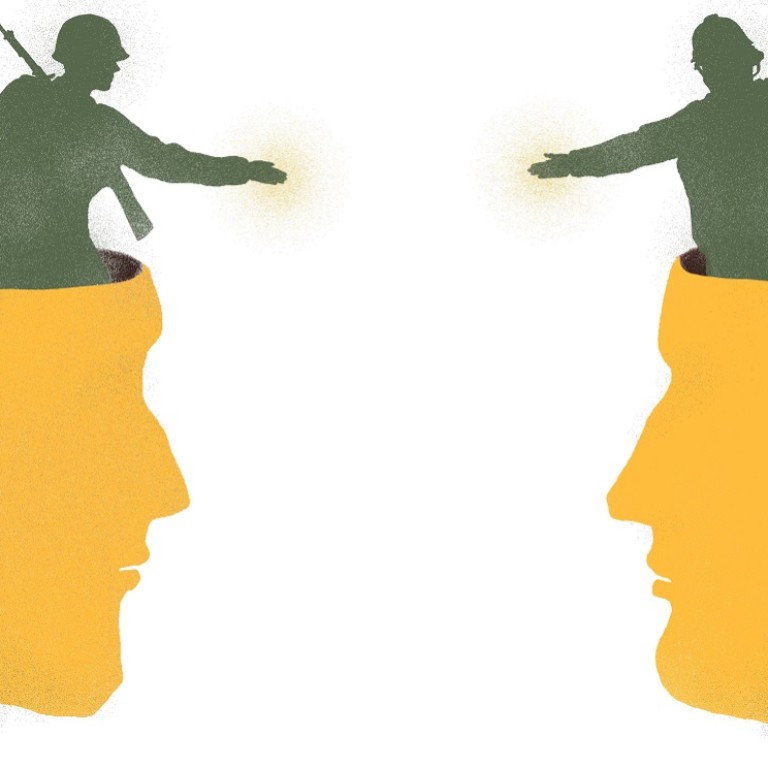
How neuroscience offers hope for a more peaceful world
Common sense and good will are not enough to overcome hatred, say experts who are turning to neuroscience for clues to a more peaceful world
The flood of tribal hate and violence in the news can lead to a feeling of inevitability that human beings are inherently violent. But some involved in conflict resolution are finding hope in neuroscience.
Some who work with ethnic, racial and religious conflict are pairing with neuroscientists to understand how small advancements in brain research can help explain how we experience emotions like prejudice and disgust and fear. It will take time to devise strategies for using that knowledge of how the brain works in the peace-building process. But simply teaching people that there was a neurological basis for prejudice had the potential to help them view the deep-seated roots of their conflicts more objectively, said Timothy Phillips, co-founder of the conflict resolution organisation Beyond Conflict.
"There is something deeply powerful about knowing it's not just about culture, race, ethnicity, and that all those things sit on an operating system called the human brain, and that it is universal," said Phillips. "Contrary to social and political science that says humans are rational, we are deeply emotional beings. What drives our behaviour is deeply emotionally based but we don't have access to what drives us."
Phillips was among a group that met at the El-Hibri Foundation in January in Washington for the first meetings connecting neuroscientists and peace-builders who work on issues including the Palestinian-Israeli conflict.
Dr Emile Bruneau - a cognitive neuroscientist at MIT who has made advances in showing how stereotypes are formed and reinforced, how empathy develops, and how such things might be rewired to advance peace - presented some of his research.
A participant in conflict resolution programmes held around the globe, he recounted a story about a peace-building retreat he'd been part of with some 100 Protestant and Catholic youth from Northern Ireland.
Participants had spent several days in small group discussions, doing art and performance projects together - classic efforts considered successful at fostering better relations. At the end of the camp, as the children were leaving, a fight broke out that pulled in the entire group, totally breaking down on religious lines.
"To me, that's not an indication that this effort was particularly successful," Bruneau said.
The point of the story is that peace-builders need cutting edge social and neuroscience to understand what really works in changing behaviour - to understand not just what people are thinking, but how they think.
"Common sense and good will are not enough," Bruneau said in a later interview.
One example of the new research focuses on how different parts of our brains activate depending on whether we feel disgust or fear. This suggested that conflict-resolution programmes aimed at reducing fear should be distinct from those whose aim was to reduce disgust, Phillips said. "Historically, disgust leads to genocide," he said.
Dr Jeremy Ginges, of the New School for Social Research, presented research showing we process not just emotions, but different values in distinct parts of our brain. These include "sacred values" that we don't want to put on the bargaining table. Attempts to do so may backfire and cause us to tighten our hold. Peace-builders have to understand that and, for example, not try to offer one party financial incentives in exchange for a sacred value.
Bruneau said part of the plan for using neuroscience was to increase awareness of how it combines with social, economic and religious forces that feed prejudice. There's hope in "simply teaching people how malleable humans are, how we can change", Bruneau said. "That's a liberating thing. Everything we know about the brain shows that it can be changed."

